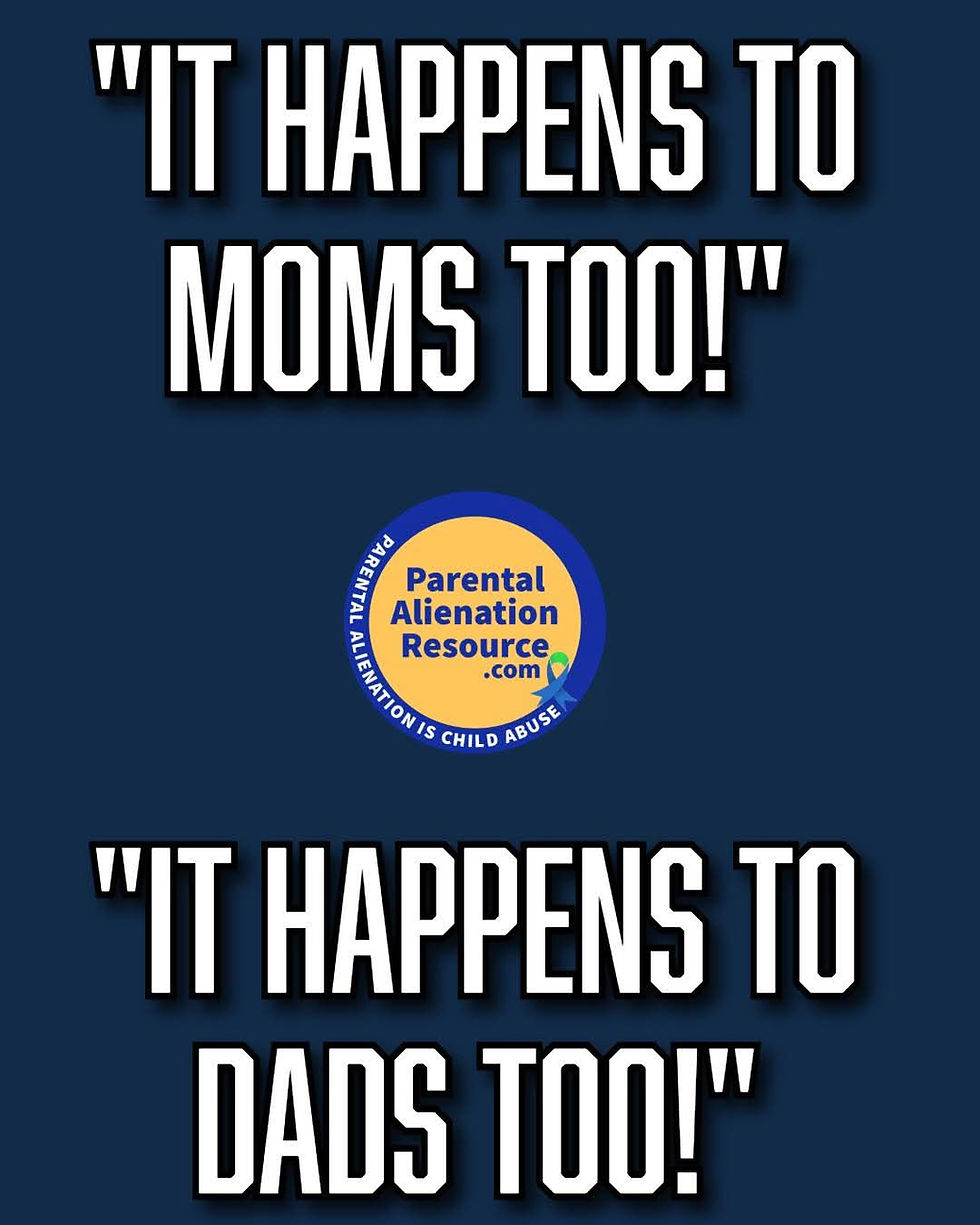Why Are Mother's More Likely to Engage in Parental Alienation
- Parental Alienation Resource

- Aug 5, 2023
- 2 min read
Updated: Aug 13, 2023

It's important to note that parental alienation can occur from either mothers or fathers, and it is not limited to any specific gender. However, some studies suggest that mothers may be more likely to engage in alienating behaviors for the following reasons:
Custody bias: In many societies, there has historically been a bias towards awarding primary custody to mothers, which may lead to feelings of entitlement or control over the child's relationship with the other parent.
Primary caregiver role: Mothers are often the primary caregivers in families, which can provide them with more opportunities to engage in alienating behaviors or attempts to manipulate the child against the other parent.
Cultural norms: Traditional gender roles and societal expectations may position mothers as the nurturers, making it easier for them to exploit this role to alienate the other parent.
Emotional attachment: Mothers may have a stronger emotional bond with their children due to biological and social factors, which could potentially intensify their desire to have exclusive control over the child's affections.
Victim narrative: Mothers may sometimes portray themselves as victims, using this narrative to gain sympathy and support from others, including the child, while demonizing the other parent.
Support networks: Female-dominated support networks, such as family members or friends, may inadvertently contribute to the alienation process by reinforcing negative beliefs about the other parent.
Protective instincts: Mothers may believe that they are protecting their children from harm by limiting their contact with the other parent, even if there is no valid reason to do so.
Perceived threats: Mothers may perceive the involvement of the other parent as a threat to their own authority or control over the child's life, leading to alienating behaviors.
Gatekeeping behaviors: Mothers may engage in gatekeeping behaviors, such as restricting access or undermining the other parent's parenting abilities, in order to maintain a sense of power and control.
History of abuse: In cases where there is a history of abuse or domestic violence, mothers may engage in alienation as a way to protect their children from potential harm, even if the targeted parent poses no current threat.
It's important to remember that these reasons are not exclusive to mothers, and fathers can also exhibit similar behaviors in cases of parental alienation.









Comments